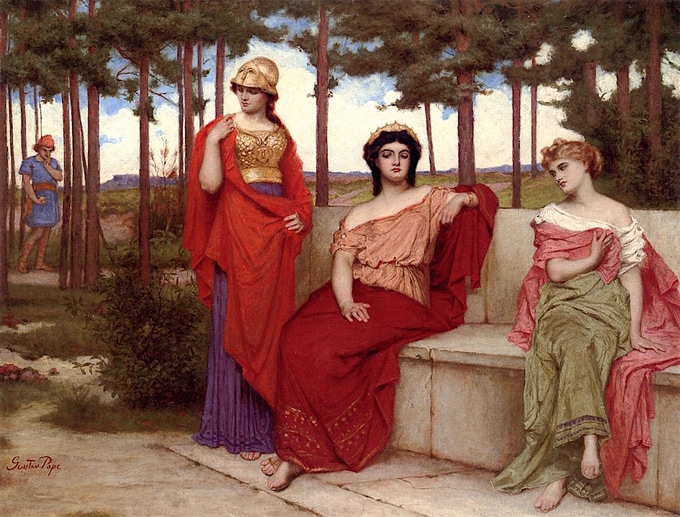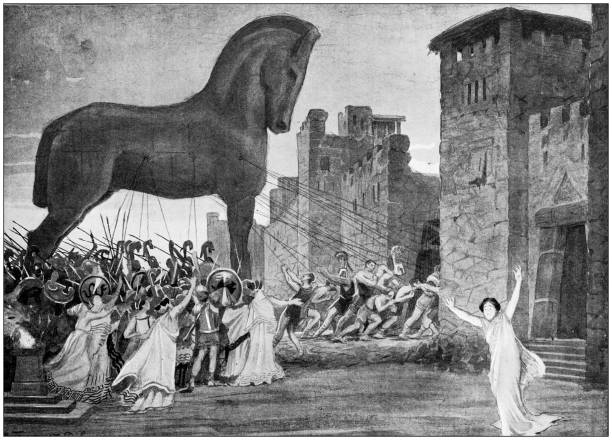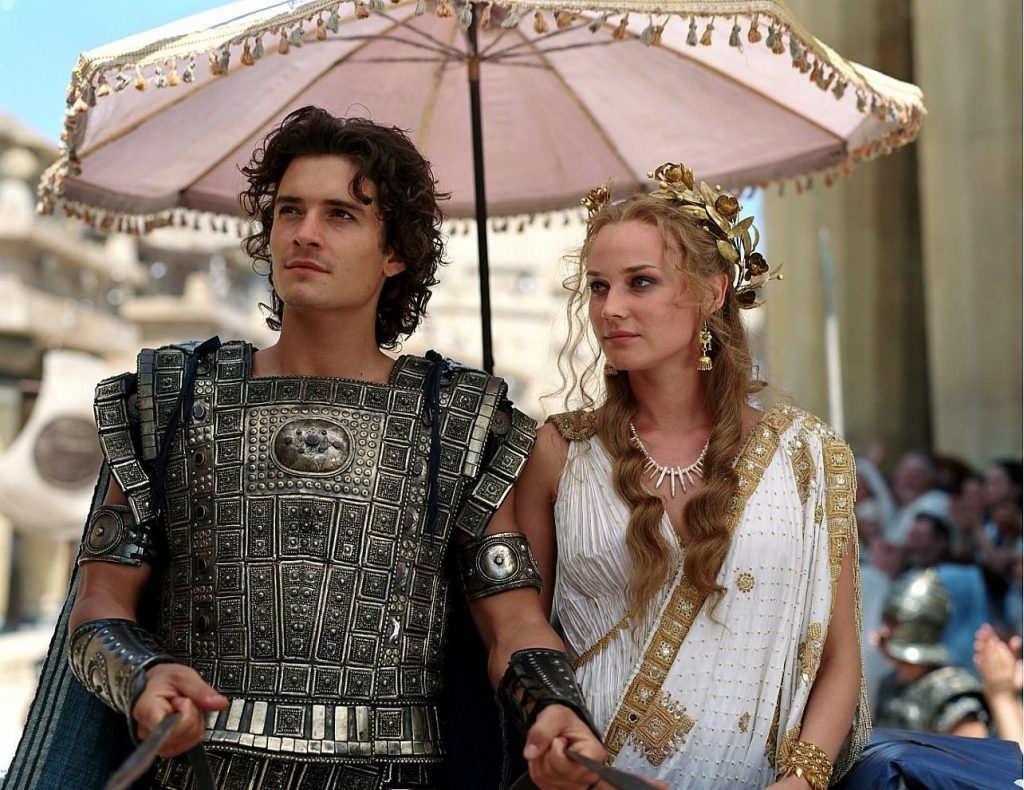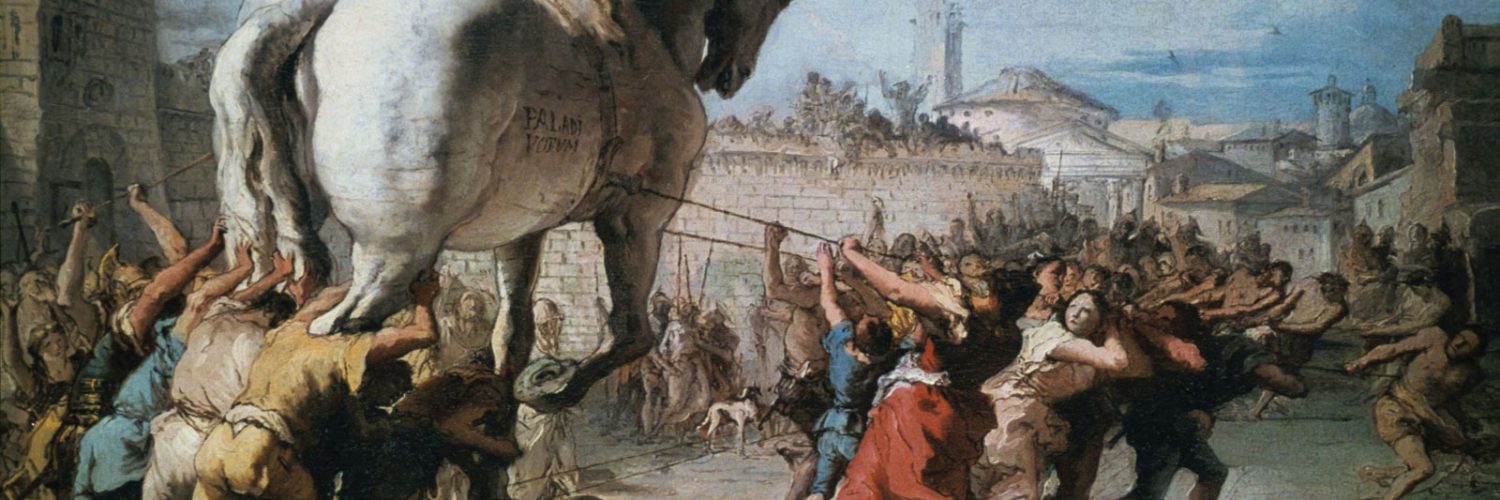
Greek Mythology
Greek Mythology was not known for happy endings. Sure, some heroes do have a happy ending, but others do not. Many would perceive Greek Mythology to be dramatic. The Gods and Goddesses are irrational and make rash decisions that create suffering for the mortals. The people of ancient times created these myths as a way to explain the phenomena that happen in life. For example, these people would tie storming and raging weather to Zeus’s anger. But really, these stories are not fact or science. They were just a means of entertainment.
Professional storytellers, known as bards, would tell these stories for the entertainment of the people. The stories were very compelling. All were dramatic, inspirational, and included great deals of bravery and battles against good and evil. Gods and Goddesses would intervene in human conflict. They would take sides and aid certain heroes. In mythology, you have to think about some things. Is the hero truly that powerful, or is it just a God or Goddess aiding him or her? A lot of this “divine intervention” happens in the Trojan War, a tremendous 10-year conflict involving many great nations, heroes, and bloodshed.

The Story of Paris
A baby is born to a King and Queen. The King and Queen were told a prophecy; that this baby would grow up to be a man who would cause the destruction of Troy. The King, who believed this prophecy, ordered a servant to take the baby out in the wilderness to die. The servant did as he was instructed to. However, a passing herdsman found the baby and raised the baby as his own.
Thus began the story of Paris, the man who would essentially cause the Trojan War. Paris would grow up to be a very handsome, tall, and strong man. He would fall in love with a wood nymph (a spirit of nature) named Oenone and would live with Oenone in the woods for a long time. Oenone was very special, as the wood nymph had the powers to heal mortal men. Injuries, emotional problems, you name it, and she can do it. All were happy, but if you’ve caught on by now, what’s the good in a story if everything’s happy?
The Golden Apple

Before Paris was even born, there was a wedding. A special wedding indeed. Peleus, the King of the Myrmidons, married a sea nymph named Thetis. Many guests attended the wedding. Mortals, gods, goddesses, and all sorts. However, one goddess was missing. Eris was the goddess of discord and mayhem. Wherever Eris goes, trouble usually comes about. Eris enjoys the bloodshed and suffering of mortals. No one would want this guest at their wedding, but despite not being allowed to come, Eris gatecrashed the wedding.
Everyone was shocked. However, Eris did not do much. Eris merely threw down a golden apple labelled “To the fairest” and left. One apple couldn’t do much, right? Well, not exactly. The three most powerful and charming goddesses all claimed the apple to be hers. Hera, Athena, and Aphrodite. Hera thought the apple was rightfully hers because after all, she was the wife of Zeus, the strongest God. Athena raged that she was the goddess of wisdom, and of course, the wisest is the fairest. Rolling her eyes and merely smiling, Aphrodite said that the apple belonged to her, for she was the goddess of love and beauty, so wouldn’t she be the fairest?
The three goddesses turned to Zeus for judgment on who the apple should belong to. However, Zeus did not want to get involved. Who would want to get involved in the affair of three spiteful women anyways? So for many years, the goddesses continued to argue and argue. No one wanted to judge between the three, because they knew that the two they did not pick would become their enemies.
The Judgement
Gods and Goddesses know everyone. The three goddesses knew that Paris did not know anything about the world of Gods and Goddesses, so he would not be afraid to judge between them. They also knew that Paris did not know he was the son of a King. And so they asked Paris to judge between them. Each one of the goddesses offered him extravagant gifts if he picked them. Hera offered Paris power, Athena offered him wisdom, and Aphrodite offered Paris the fairest and most beautiful wife. Apparently, Paris was really into Women. Paris did not even consider the other two offers before choosing Aphrodite. Hera and Athena were very ticked off. Aphrodite, however, was pleased.
Helen of Sparta

Over time, Paris would hear about Helen of Sparta. Helen was considered to be the most beautiful woman in the entire world. Paris was very inclined to see Helen for himself, so Paris set sail and visited Helen’s lands. The problem was that Helen already had a husband. Menelaus was his name, and he was a powerful man, being the King of Sparta. Paris visited the kingdom and told Menelaus that he was but a humble traveller who heard of the greatness of Menelaus and his kingdom. Menelaus treated Paris well. Menelaus opened his arm and was very hospitable.
During his stay, Paris eventually was able to talk to Helen. Paris made an excuse not to go with the king on a hunting expedition, and while the King was out, Paris proposed to Helen that she should run away with him. Helen accepted this offer. You see, Paris had Aphrodite’s Blessing. Aphrodite’s Blessing was a special gift from Aphrodite. You could charm people and get them to bend to your will. With the blessing, Paris was able to make Helen become attracted to him. And so Paris took Helen with him and sailed back to Troy.
Paris and Helen traveled back to Troy. When the King came back from his trip, he was engrossed in red hot anger. Menelaus’s wife was missing, and the King knew that Helen had gone with Paris. The King armed his warriors and called out to other nations to fight against Troy. The King and his whole army set sail for Troy, intending to take back Helen and claim Troy for their own. Thus begins the Trojan War.





Great job!
maybe.
Who Do You THink is the most powerful Greek mythology character. I Think that the strongest character in Greek Mythology is Chaos, known as void. From Chaos Gaea was born, so Were Day and Night, the Air, The Sea, and Ouranus. Chaos was Quite literally the power of creation, unmatched by any and all physical beings that existed in the myths.
Hello! That is a good question. I’ll have to agree with you on that one. Chaos was very powerful, and no one would be able to stand a chance against him. Being one of the primordial gods, he quite literally is the most powerful being to have ever existed.
Paris is kinda dumb. He chose a wife over wisdom and power.
LOL! Yeah. He made a really dumb decision. That’s the thing with these types of crazy dramatic stories. The main characters often make bad choices.
I totally agree with you. The character’s make really stupid choices. The God’s are even worse, if I’m being honest.